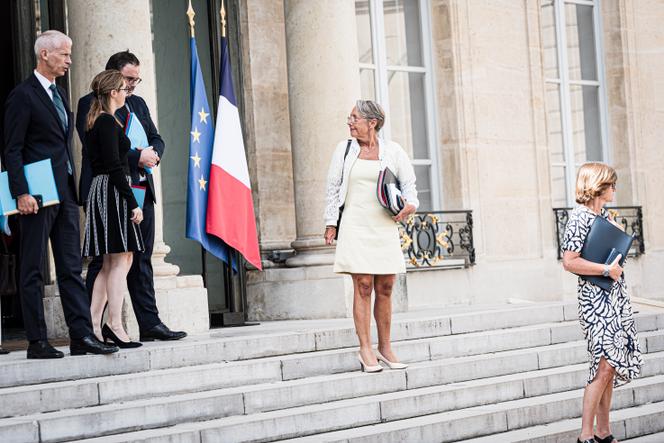


After three weeks of rest at the presidential summer retreat in Brégançon, Emmanuel Macron lifted the veil on the "major political initiative" he promised at the beginning of August to give his chaotic second term new momentum. The quest to break the deadlock in Parliament will take the form of a meeting between the president and political leaders from all sides.
Judging that "our nation is going through an unprecedented moment," Macron will invite the leaders of the parties represented in Parliament on August 30. The aim is to find points of agreement on the main current issues, which could lead to transpartisan bills, and maybe even referendums.
"Faced with major geopolitical, climatic and technological upheavals, with the hardships our country has recently endured, and with the risks of division, I consider it my responsibility to propose to all the political forces represented in our assemblies that we try to act together," he said in a lengthy interview with weekly magazine Le Point.
During this unprecedented conference, the president, who saw his proclaimed 100 days of "appeasement" following the pension reform sink into a wave of urban violence, will address "the international situation and its consequences for France," as well as "the nights of rioting we experienced, with the aim of taking decisions to strengthen the independence of our country and rebuild our nation and everything that holds it together: the family, the school, universal national service, the transmission of our culture, our language, the regulation of screens," and even "our organization and our institutions in all territories."
Eric Ciotti, the president of the right-wing Les Républicains (LR) party, which is the main target of this initiative, received a phone call from Macron on Tuesday evening to discuss the meeting, which promises to be "a sort of seminar where everyone could speak freely," according to a source close to Ciotti. "It's the president who's taking the wheel, that's clear and unambiguous," said Hervé Marseille, the president of the of the opposition center-right UDI party, who was contacted on Tuesday by Thierry Solère, one of Macron's top political advisers.
Prime Minister Elisabeth Borne, whose laborious assignment until now had been to build "project-based majorities" in Parliament and even "broaden" the ruling coalition, now has the task of "continuing parliamentary work" and "pushing forward the major issues," Macron said.
While this "initiative" was initially intended, according to the Elysée, to involve only the "political forces of the Republican arc," leaving aside Marine Le Pen's far-right Rassemblement National and Jean-Luc Mélenchon's hard-left La France Insoumise, it is addressed to all the political parties sitting in Parliament. The tweak was partly influenced by Macron's centrist ally François Bayrou, but especially by indignation from the left. "It's not up to Jupiter to decide who's in the Republic," had said Olivier Faure, the head of the Socialist Party (PS), on X (formerly Twitter).
You have 47.46% of this article left to read. The rest is for subscribers only.
